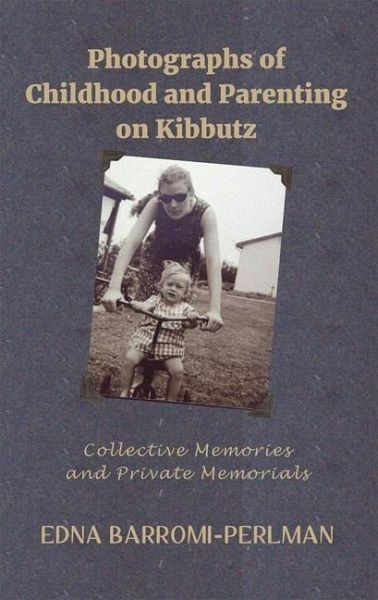
Photographs of Childhood and Parenting on Kibbutz
Collective Memories and Private Memorials
Versandkostenfrei!
Versandfertig in über 4 Wochen
81,99 €
inkl. MwSt.

PAYBACK Punkte
41 °P sammeln!
What is it that we wish to see in our photo albums? Reality as it was, or a selected, upgraded version of our past? Can we control the memories we pass on? These are some of the thought-provoking questions that Edna Barromi-Perlman raises in her book. Barromi-Perlman analyses photographs taken on kibbutzim between 1948 and 1967. Kibbutz socialist ideology and egalitarian lifestyle, in this formative period, are investigated from a novel perspective: the unique genre of photography it generated. This genre encompassed all facets of life; family, childhood, education, parenting, communal life an...
What is it that we wish to see in our photo albums? Reality as it was, or a selected, upgraded version of our past? Can we control the memories we pass on? These are some of the thought-provoking questions that Edna Barromi-Perlman raises in her book. Barromi-Perlman analyses photographs taken on kibbutzim between 1948 and 1967. Kibbutz socialist ideology and egalitarian lifestyle, in this formative period, are investigated from a novel perspective: the unique genre of photography it generated. This genre encompassed all facets of life; family, childhood, education, parenting, communal life and work. Private and public photographs taken on kibbutzim, alongside individual memories, unveil the challenges of parenting on the one hand, and their effect on childhood on kibbutz, on the other. These photographs contain both overt and covert information on Zionist-socialist ideology, conveying - not just what is in the images, but as much by what is left out of them - the struggles and hardships endured by kibbutz members. By learning how to interpret the images, we gain a fascinating and graphic insight into the lives and philosophies of kibbutz members and how their societies were structured.












